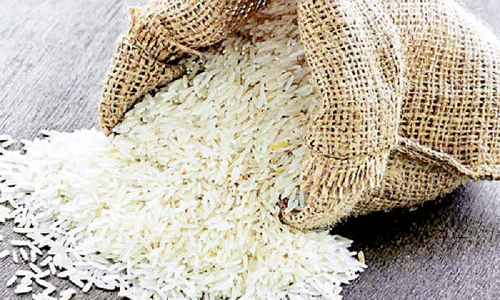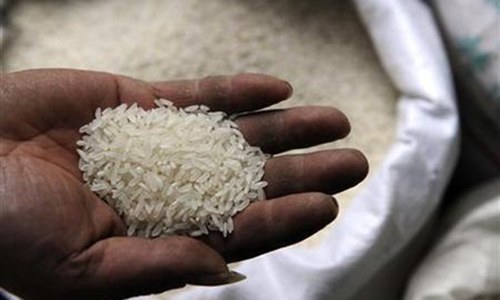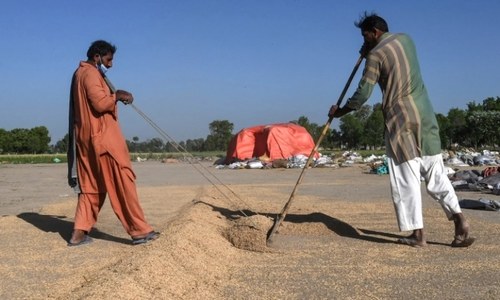LAHORE: Punjab has transplanted rice on six million acres so far, against its target of five million for the current season and the process may continue for another week to improve the tally.
According to the Punjab Crop Reporting Service, fresh figures show that rice transplantation has beaten its previous year’s record of 5.9 million acres.
They also fear that it may be the hybrid variety that is expanding at a breathtaking pace.
The agriculture authorities were expecting an increase in acreage, but were of the opinion that it may not go near, let alone beyond, last year’s figures because sugarcane has claimed almost 300,000 acres more than last year; 3.1 million acres this year against 2.8 million last year.
Hybrid rice is replacing traditional basmati, which has been Pakistan’s premium export
However, cotton loss seems to have worked in the favour of rice. “In fact, cotton lost almost 900,000 acres this year,” explains an official of the crop reporting service. Its target was four million acres but it stopped at 3.1 million acres against all expectations.
The department did expect a loss, but certainly not to such an extent; almost 25 per cent. This acreage seems to have gone in favour of mainly rice and, to some extent, sugarcane.
The estimates about rice would be clarified by the last week of this month when the crop reporting service would firm up its final survey of transplantation, the official suggests.
“This rice expansion at neck-breaking speed generates a few fears,” explains Raja Lutfullah Khan, a grower on the outskirts of Gujranwala. Firstly, hybrid rice is replacing traditional basmati, which has been Pakistan’s premium export. Dozens of countries around the world produce hybrid rice but basmati is a Pakistan specialty. Pakistan has been fighting international legal battles to save this heritage and prove its sole proprietorship.
Now, this variety is being threatened within the country. The hybrid varieties have already expanded to 15 to 20pc area and are claiming more every passing year. Can Pakistan afford to compromise on basmati for the sake of hybrid rice? This is a policy question that needs to be answered before further damage, the grower maintains.
On the second plank, where would water come from for this guzzler? Rice area even in 2016-17 was 4.29 million acres, which has now jumped to six million; an expansion of almost 40pc.
Till 2016-17, Pakistan was sparing almost 30 million acre feet water for rice maturity. Can it now afford to increase the corresponding 40pc water consumption?
In fact, that may already be under way but is going unregistered because additional water may be coming from subsoil reservoir. But can it be left unchecked, and for how long?
Pakistan should contextualise changes in cropping patterns because they would have a long-term impact on the rest of the crop cycle and the future of the country, Lutfullah pleads, adding that “many hugely water-dependent crops — sugarcane and rice being two prime examples — are creeping in unnoticed, or at least unstudied for their long-term effects on the country’s future. This is a scary scenario.”
Published in Dawn, August 15th, 2021















































